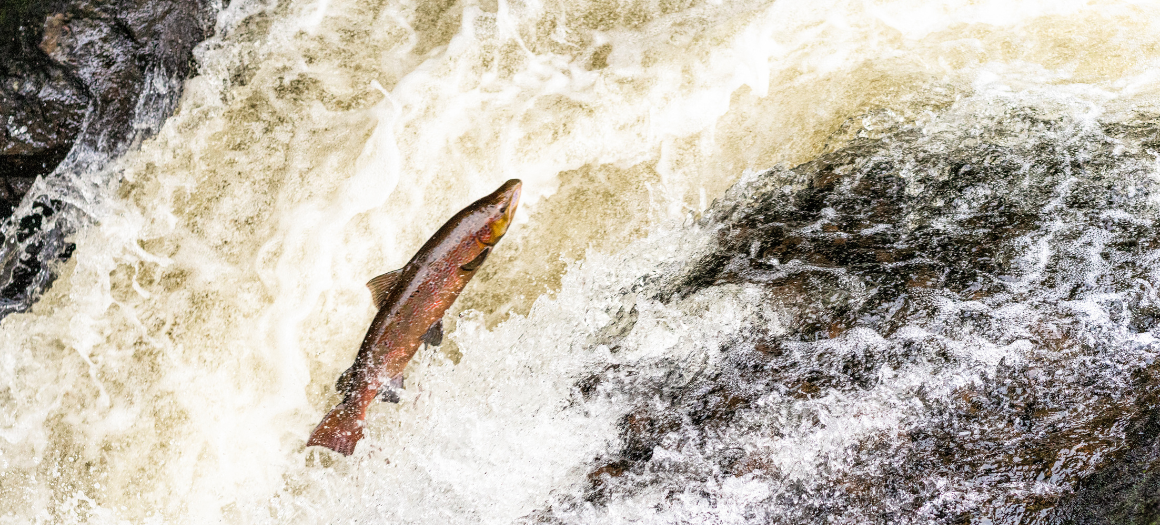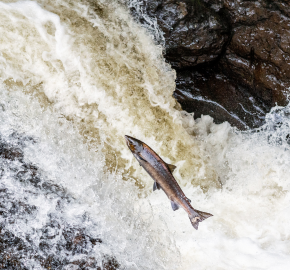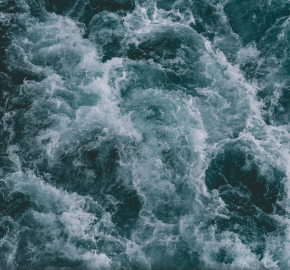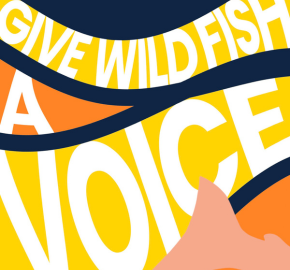2023 assessment of Atlantic salmon numbers in England and Wales lowest on record

Today, the Environment Agency has released the 2023 stock assessment for populations of Atlantic salmon in England and Wales. The data shows salmon stocks have fallen to their lowest level since records began and confirms the unsurprising but devastating news that returning populations of Atlantic salmon have seen a stark decline. The total declared salmon catch for 2023 was provisionally estimated at 5,399 fish, down from 6,952 in 2022. Until 2017 at least 20,000 fish were recorded every year.
To thrive salmon need clean and plentiful water – both indicators of healthy rivers. This data and the 2023 reassessment of Atlantic salmon by the IUCN Red List of Threatened Species (funded by WildFish supporters), which moved UK populations to endangered, highlights the declining condition of our freshwater environment and the urgent need to prioritise its recovery.
The species’ rapid decline is proof that our rivers, lakes and streams are in crisis – devastated by years of pollution, over-abstraction and intensive fish farming. Atlantic salmon have suffered at the hands of the regulator and its failure to protect their habitats.
This report should be a wake-up call. Atlantic salmon are on the frontline of the biodiversity crisis and they are running out of time.
Janina Gray
Deputy chief executive and head of science
The data released today increases – yet again – the urgency of our call for immediate action to address the recovery of rivers in England and Wales and reverse the decline of Atlantic salmon, a keystone species critical to its ecosystem. Atlantic salmon are an indicator species. If a river is fit for salmon it is fit for everything – including us.
Janina Gray continued: “There are immediate actions the government can take right now to address this emergency and take back control of our rivers so that they can start to recover; it just requires the political will to make it happen”.
Follow the link below to find out more our work to protect Atlantic salmon and their waters.
FIND OUT MORE



It’s all about the big net word biodiversity. Why can’t you say that includes predatory pressure or is that an area that can’t be included. One thing for sure predators are on the increase and using the biodiversity “” as a bio free zone that’s not accounted for or in need of control. What a load of rubbish.
Hi John, thanks for your question. As you point out, our freshwater ecosystems are completely out of balance and this is for many reasons. Other pressures including barriers to migration and predation can also cause a problem for wild salmon populations.
Do folk realise that the whole life of the noble Salmon begins in our rivers.
We seem to be hell bent on destruction.
Hidden beneath the surface, our remarkable salmon is too often overlooked but desperately needs all the help it can get. Sadly, out of sight, out of mind.